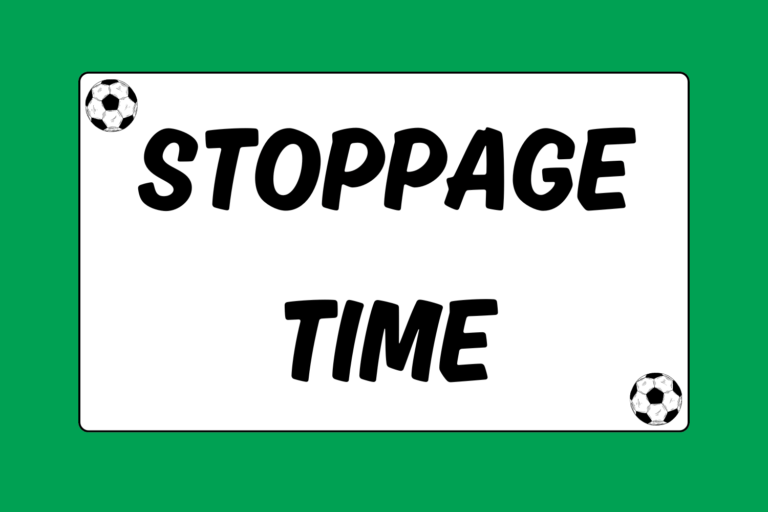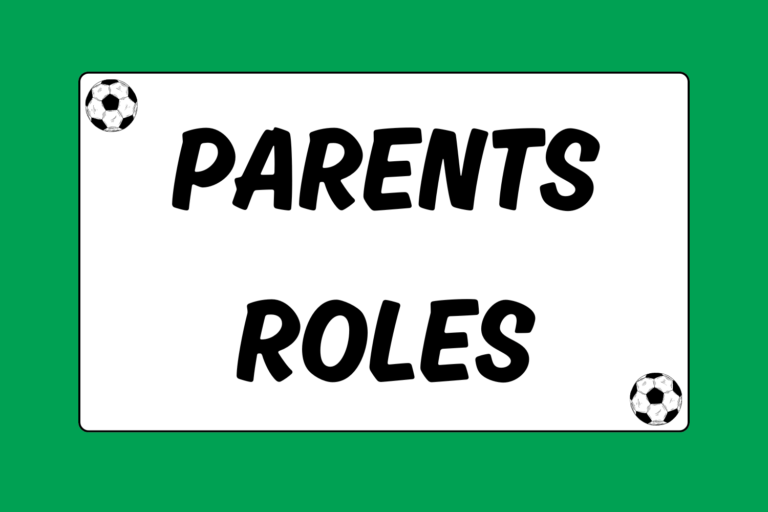As a parent of a young soccer player, there are a number of things you should know before you become your kid’s biggest fan. First and foremost, it’s not about you. Don’t try to live vicariously through your child because all it will do is push your child away from the enjoyment of soccer. Support your child, but respect their boundaries. Below are a number of other introductory tidbits of advice to help you navigate the life of a soccer parent.
Respect the Coach
Most coaches are unpaid volunteers who give up their free time to help your child, so try to respect their sacrifice. The coach is the coach for a reason; they generally know a lot more about soccer than you do. For that reason, respect their decisions on the pitch. Sometimes a child may not gel with a coach’s particular style or philosophy, but until you give the relationship a fair chance you will never know.
Just because your child is not getting the same amount of playing time as other children does not mean that they are being singled out. Some children are more gifted than others, and some may not be receiving playing time for disciplinary reasons. If you have an issue, ask the coach if they would be willing to speak with you privately. Never confront the coach in front of other parents because he or she may feel threatened and become defensive.
Keep Tabs on Your Child
Children are a lot smarter than we give them credit for, and their ability to manipulate their parents against the coach should not be underestimated. The coach has no motivation to tell lies to the parents about why their child is not being given playing time, but your child may. Try to remain objective and distance yourself from the fact that the child in question is your own. Consider the coaches perspective and their responsibility to the team as opposed to just your child.
Respect the Other Players
Not every child you encounter will be a gifted player, and at the youth level the concept of blame is one that should be eliminated entirely from your mind. If another player makes a mistake, don’t brazenly criticize them on the sideline in front of the coach and the other parents. Try to put yourself in the shoes of another parent if your roles were reversed. You wouldn’t take it too kindly if they were bad-mouthing your child, so show them the same courtesy.
Winning vs. Player Development
Even though winning is a nice ego boost for you as a parent, it is not the end-all for your child. Particularly at the younger age groups, the importance of winning is secondary to player development. You should be more concerned that the coach is teaching your child the fundamentals of the game than about whether they are building a winning mentality.
Losing can be tough, but you must consider that a competitive drive is not something that can be taught, it comes from within. The more you berate your child for losing, the less fun the game will become for them. Ultimately it will likely result in your child giving up on the sport entirely. Don’t underestimate the importance your child puts on your approval. If you make them feel bad for losing, they will continue to lose.
Maintain Sideline Etiquette
Some parents think that by yelling from the sideline their kid will miraculously begin to play better. That is rarely the case. It has been proven by scientific research that athletes, most notably children, completely tune out exterior vocal distractions in order to focus all their energy on the task at hand.
The only time they will actually respond to sideline banter is when the noise is so disruptive and negative that they become aggravated, which subsequently leads to a decrease in performance. If your child will only respond negatively to feedback, why not just keep your mouth shut entirely for the duration of the match? Your child will be much more receptive to your comment after the match when you have their undivided attention. Cheering is great, criticizing is not.
Hot Tip: Stay Positive
Although constructive criticism is a good way to develop a young player, leave that to the coach. Your job as a parent should be to support your child through positive encourage. As long as you stay positive your child is guaranteed to have a better time, and in all likelihood will find success on the pitch as well.
Snacks
Very often the team will set up a weekly snack sheet so the players will have something to eat at halftime and after the game. The coach or team manager will likely ask you to sign up for a certain date, which you should mark down and remember for the future. Suggested snacks are usually some fruit and water/energy drinks for halftime, and juice and a sweet treat for after the game.
Parent Responsibility
Soccer teams will usually have a number of responsibilities that are divvied up at the beginning of the season. These include team manager, jersey coordinator, tournament coordinator, field coordinator, etc. If possible, try to volunteer for one of these positions to lighten the burden on the coach. After all, if they have to focus on administrative tasks, it means they will be spending less time developing the athletic ability of your child.
Ready to Cheer?
After reading the introductory soccer parenting information above, you should be ready to become a model parent on your child’s team. Always remember that the kids come first, and that they are there to have fun, not to please your bygone athletic ambitions. If you follow the advice above, you may find yourself having a blast as well!





